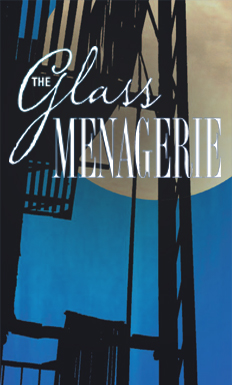40 Years of Theater; PPT’s 2014 season opens with an American classic: The Glass Menagerie.
Review by Megan Grabowski
 Fall has officially arrived
in Pittsburgh. This means, the
Pittsburgh Public Theater (PPT) is opening their doors for another season. On
October 9, 2014 I stepped inside the wide windowed atrium of the O’ Reilly Theater
on Penn Avenue anticipating an evening of escapism at its’ finest. This performance
of the Tennessee Williams play The Glass Menagerie will surely clutch the
strings of the collective hearts of Pittsburghers- expressly those who have
supported the success of the PPT since its inception 40 years ago. Yes, that’s right; this is the 40th
anniversary of the PPT. What better way
to commemorate the achievements of the theater than by producing, Menagerie,
mirroring the theater’s first season.
Fall has officially arrived
in Pittsburgh. This means, the
Pittsburgh Public Theater (PPT) is opening their doors for another season. On
October 9, 2014 I stepped inside the wide windowed atrium of the O’ Reilly Theater
on Penn Avenue anticipating an evening of escapism at its’ finest. This performance
of the Tennessee Williams play The Glass Menagerie will surely clutch the
strings of the collective hearts of Pittsburghers- expressly those who have
supported the success of the PPT since its inception 40 years ago. Yes, that’s right; this is the 40th
anniversary of the PPT. What better way
to commemorate the achievements of the theater than by producing, Menagerie,
mirroring the theater’s first season. The evening began when Producing Artistic Director, Ted Pappas, bestowed upon the eager audience an honorable introduction, which included a gracious recognition of PNC and their long withstanding commitment, not only to the achievements of PPT but to the arts as a whole in our region. Then the lights dim-
The show begins with an
overview of the period by Tom Wingfield, played by Fisher Neal. Neal, a
seasoned actor is making his Pittsburgh debut in Menagerie. Williams writing is a vessel for Neal’s
eloquence. His voice grants the audience a glimpse into the lives of his family
in 1937. As narrator, Neal reminds us,
with the reflective and introverted tone, utilizing the intellect of a poet,
that this story is not real; it is a memory and intended to be interpreted as
such. The show proceeds with the remaining
characters, Cathyrn Wake, as Laura Wingfield, Lynne Wintersteller staring as
Amanda Wingfield and Jordan Whalen cast as Jim O’Connor. Each actor shares with
the audience a moment in time, a snap chat of memory and most unfortunate, the
immense cruelty and weight of disenchantment that can accompany said
remembrances.
 |
| Fisher Neal as Tom and Lynne Wintersteller as Amanda. |
 |
| Cathryn Wake as Laura and Jordan Whalen as Jim. |
 |
| Fisher Neal as Tom |
Wake portrays the meek
and innocent Laura. She is quiet and
reserved, and very aware of the future unfolding before her. Nearly a hermit, she has no goals and no
self-esteem. When Amanda announces Laura
is to open the door upon Jim’s arrival she is nearly paralyzed. The anguish in
her voice as she pleads with her mother not make her open the door is gut
wrenching. Then dinner is served. Laura is summoned to the table; she collapses
in a heap onto the floor. This moment,
Wake’s finest scene in the play, produced gasps and compassionate sighs from
the audience. It was during this scene
I felt the burden of humanness. Wake’s
depiction of Laura awakened the memory referred to in the opening narration-
Laura’s display of anxiety rings true; it is something primal. Who hasn’t, at
one time, frozen with fear? She is
petrified; stifled by her own self judgment and inadequacies. Wake’s small stature helps give rise to the
young Laura. Her shakiness, limp and
near inaudible single word responses to Jim’s inquisition further enhances the
model of a weakly young woman. Whatever ails sweet Laura, Wake invokes.
Whalen, cast as Jim
O’Connor, the handsome has-bin with natural magnetism, incites Laura. As a man of many talents, O’Connor excels in
reading people’s dispositions. It is
this particular skill that he uses to begin coaxing Laura out of her shell. His
voice and gestures communicate a man on a mission; he’s going places. Not just in the role of Jim O’Connor the
warehouse worker by day, public speaking student at night; destined for
something bigger and better than the warehouse, but as a renowned actor sure to
make many more appearances on stage across the country.
PPT’s 3rd
rendition of The Glass Menagerie reminds us, “Time is the longest distance
between two places”. Pittsburgh in the 1970’s, and St. Louis, Missouri in the
1930’s couldn’t be more different, yet, the expertly attuned direction from
Pamela Berlin captures the memory of the Wingfield’s troubles through moving
dialogue and staging. The actors make it
easy for the audience to suspend their own feelings of disbelief and become
swept up into the unfolding drama. But it is Williams’s words which give us an
honest glance into the enduring complexities of humanity.
The Glass Menagerie is a classic 20th
century American drama and can be seen from now through November 2, 2014.
Purchase tickets here: http://publictheater.culturaldistrict.org/production/40790
 Reviewed by Megan Grabowski
Reviewed by Megan GrabowskiProfessional writer, Social-Media Junkie, Community Fundraiser and Pittsburgh Enthusiast.


No comments:
Post a Comment